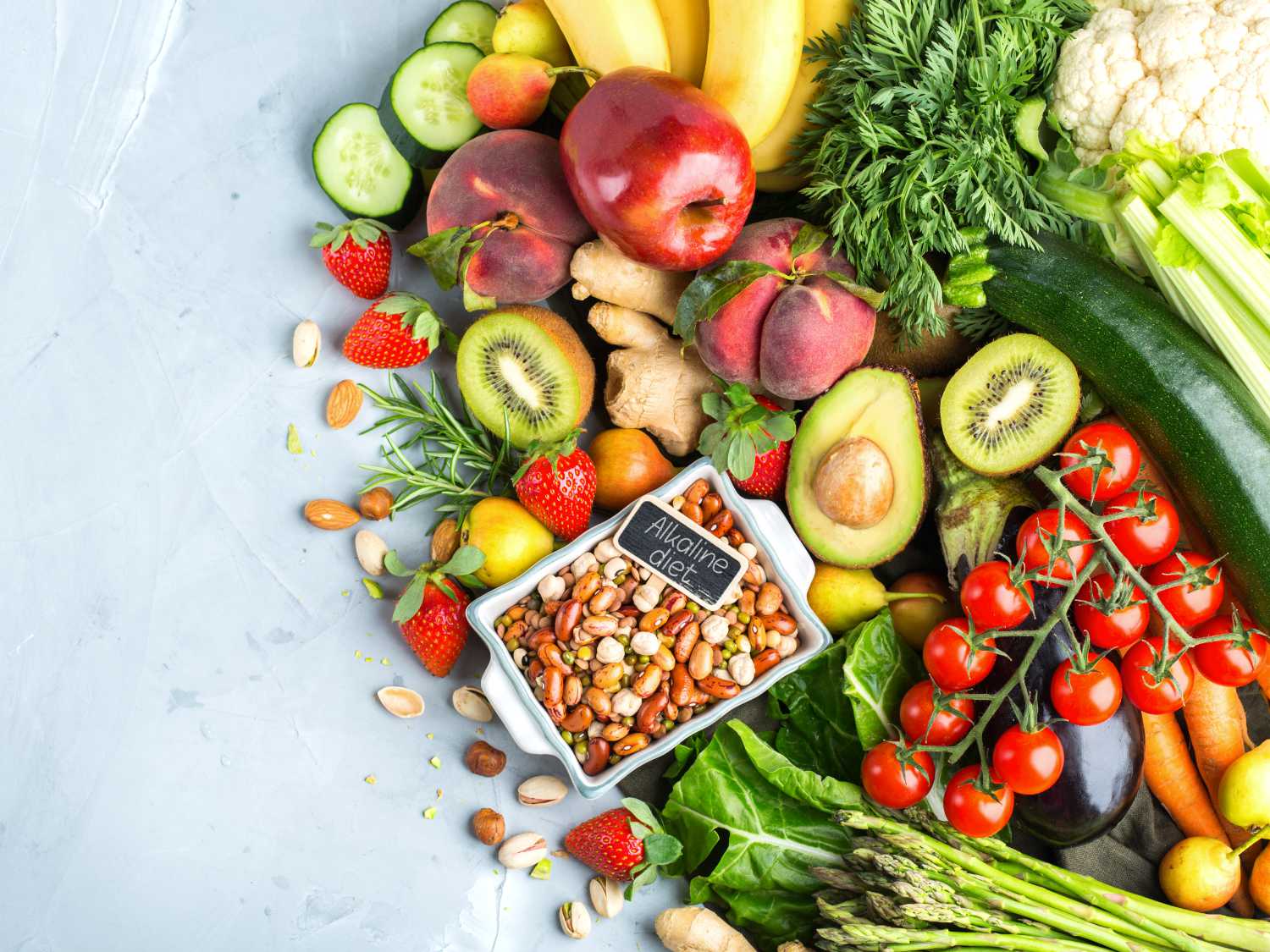Your basket is empty
Already have an account? Log in to check out faster.
Already have an account? Log in to check out faster.

Alkaline foods are those whose non-metabolized residues present a basic pH.
The pH is a logarithmic concentration value that determines the acidic or basic (alkaline) nature of a solution, and it ranges from 0 to 14:
Acidic: values between 0 and 6.9
Neutral: equal to 7
Basic or alkaline: values between 7.1 and 14
Every part of our body has different pH values that support the proper functioning of our organism. Therefore, it is crucial to maintain a correct acid-base balance. Various organs regulate this balance, along with extracellular and intracellular buffer systems, which neutralise pH variations, maintaining the physiological value.
Factors that can affect the acid-base balance, causing an increase in acids in the body, are numerous: excessive exercise, aging, stress, smoking, alcohol use, and especially diet.
Modern diets, mainly composed of packaged, refined, and processed foods, excessive consumption of animal proteins and sugars, tend to have an acidifying effect on the body, potentially leading to negative health consequences.
Therefore, alkalinization means bringing the pH back towards the right alkalinity and, consequently, rebalancing the health of the whole organism, to regain natural well-being.
For this reason, it might be useful to consume alkaline foods daily, which are able to “shift” the pH towards alkalinity to restore an acid-base balance. This type of diet is called the alkaline diet.
The alkaline diet includes consuming:
80% of alkaline foods: such as vegetables, fresh fruit, fruit juices, tubers, nuts, and legumes.
20% of acidifying foods, trying to limit the consumption of foods like refined grains, meats, dairy products, and alcohol.
As mentioned, alkaline or alkalizing foods are those whose non-metabolized residues present a basic pH.
PRAL (Potential Renal Acid Load) is a scientifically validated method to establish the acid/alkaline potential of a food. Alkaline foods have a low PRAL, regardless of their pH. Alkalizing foods are mainly fruits, vegetables, legumes, and whole grains (not refined).
Here is a list of some of the most alkaline foods to consume:
All vegetables, especially the cabbage and broccoli family, as well as all leafy greens like spinach and chard.
Tubers and roots, such as potatoes, beets, turnips, carrots, and radishes, and also maca.
Fruits, particularly lemon and all citrus fruits, grapes, pineapple, melon, etc.
Legumes, such as lentils, peas, and chickpeas.
Nuts and dried fruits
Grains, to be consumed whole.
It should be clarified that there is no scientific evidence to support the belief that foods defined as alkaline can affect the acidity and pH of body fluids and that this supposed alkalinization would have beneficial effects on the organism.
It is practically impossible to substantially modify the pH of the organism because we are built to prevent this from happening.
In fact, when we consume an acidic substance (like a citrus juice or tomato juice) or an alkaline one (like a spoonful of baking soda), some sensors detect the imbalance, and the body itself immediately activates a series of mechanisms that restore the correct acid-base balance.
In conclusion, it is not proven that foods can modify the body's pH, and we know for sure that it is a mechanism finely regulated by our body naturally.
However, it should be noted that the alkaline diet favors the consumption of fruits and vegetables, discouraging excessive consumption of meat, dairy products, and refined grains. So, certainly, some aspects of this diet, such as the emphasis on vegetables, are positive!
Sources:
0 comments